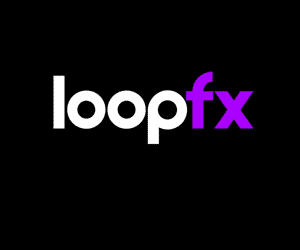The Last Look…
Posted by Colin Lambert. Last updated: September 14, 2021
Three weeks ago I asked the question, “is it time to declare the primary FX venue era over?” and, unsurprisingly given the emotion around this subject, I have had a lot of very good feedback since.
Since that column was published the core premise of it has been reinforced at face value by EBS reporting what I suspect is its lowest average daily volume for any month this century. Certainly it is the lowest since the platform started reporting data in January 2007, but it is, obviously, impossible to know what turnover was in the years before that.
Either way, as an acquaintance of mine succinctly put in, EBS “cratered” in August, however it may not be a “primary” story, for it is worth noting that Refinitiv’s monthly data was a little more positive, falling 3.5% from July but actually rising 8% from the previous August. The latter, it should be noted, was just a fraction above its own low since reporting data began.
I am told that volumes on Matching continue to struggle around or under the $30 billion per day mark, but that platform’s strong position outside the major currencies is helping provide some resistance against what seems to be the inevitable march back to the ECN field by the once leaders.
One wonders what CME Group management think about the numbers from EBS, but then CME’s own FX data wasn’t that encouraging, being down some 17% month-on-month and year-on-year, and the third lowest month since 2009 in notional turnover terms. It was only beaten (just) by April and May last year, which were generally horrible months for FX as a whole. Both are working hard to broaden their currency scope, but the reality is euro and yen make up a big chunk of the business (with CNY for EBS), and these markets are just not interesting enough at the moment.
Obviously, CME bought Nex Group for more than EBS Market, however that was, probably with Traiana, the flagship of the enterprise. One thing is for sure, CME has reason to be grateful to former EBS head Gil Mandelzis for driving diversity of product at the platform in 2012-13. I recall at the time there was some head-scratching over why different products were needed, but in EBS Direct, and more latterly EBS Institutional, which was born out of the Molten Markets project, a lifeline has been thrown to the core FX business.
It will be interesting to see how the September data plays out across the platforms. EBS Institutional is touting a new record daily volume of $20.7 billion last week on 8 September (I am assuming, like other data, this is single count, but that is not specified), and reports I hear about the new EBS Direct platform are positive, so we could look back at August as an outlier. On the other hand, the apparent success of EBSI and Direct may only serve to reinforce the decline at the core CLOB.
People understand the importance of the CLOB, but more and more of them want to trade in a disclosed fashion.
Of course, whilst touting the benefits of diversity, it would be remiss of me not to observe that there may well be an element of cannibalisation here – EBS Direct has undoubtedly taken away some of the interbank volumes from Market. I was reminded of this by several correspondents over the past couple of weeks, who also neatly highlighted the conundrum facing the FX market. People understand the importance of the CLOB, but more and more of them want to trade in a disclosed fashion. As I noted in my previous column, the environment just isn’t conducive to trying to decent-sized tickets as far as many traders are concerned.
So there, in a nutshell, is the paradox facing what we once referred to as the primary venues – their very diversification, while being vitally important for their business, is also chipping away at their core franchise and, importantly, their position in the data business.
There are reasons to be positive at both Refinitiv and EBS – the headline numbers at the former are holding up as noted, and the latter is likely at the bottom end of a cycle which will turn up as the new EBS Direct and EBSI gather momentum. Equally, the CLOBs will still have an important place in the industry – after all, nothing has replaced them yet in terms of the vitally important market data they deliver.
The concern on data is the day the LPs feel they can do without what is for some, a pricey service. There is already a shift to using more proprietary data, but interestingly the great democratisation of spot FX data does not seem to have occurred. The firm CLOBs still offer really good value; it is maintaining or developing that value that is critical to their future path.
The good news is most LPs seem unbothered paying brokerage on the CLOBs because they are executing trades they need to execute for their own business and risk management purposes.
Overall though, while the numbers may look horrible, the overall business may not be significantly damaged. EBS may be able to leverage CME’s clearing and FX Link to expand further in product terms, likewise Refinitiv has access to the LSEG family of products, including clearing. Establishing those links quickly and efficiently will be vitally important.
For the CLOBs, the so-called primary venues that I confined to history three weeks ago, the outlook is less clear, but there is one potential positive. While they may like the disclosed method of trading, increasingly liquidity providers are getting frustrated at the cost of trading on many of the platforms. I asked several people about this and the answer was insightful.
Effectively, when it came down to paying brokerage, most LPs are less bothered on the CLOBs because they are executing trades they need to execute for their own business and risk management purposes. This highlights the value they can still offer and the regard in which they are held by some major market players and suggests to me that these venues are less vulnerable to a price war. The cost of data in a diminishing market share is of greater concern and as noted in August, I see some form of aggregation across firm venues taking shape. That said, even at lower volumes, data from “good” trades or firm prices still has value – the only way I see the data business growing is a better, cleaner, trading environment without “pippers” and the white noise of very small trades.
Ultimately, therefore, while I still believe the age of the primary venue is over, As liquidity continues to concentrate in fewer hands, the CLOB is unlikely to grow, but perhaps this should not be a concern? After all, these business are now very firmly part of a portfolio, rather than the standalone, albeit important, venues they once were.
@colinlambertFX





